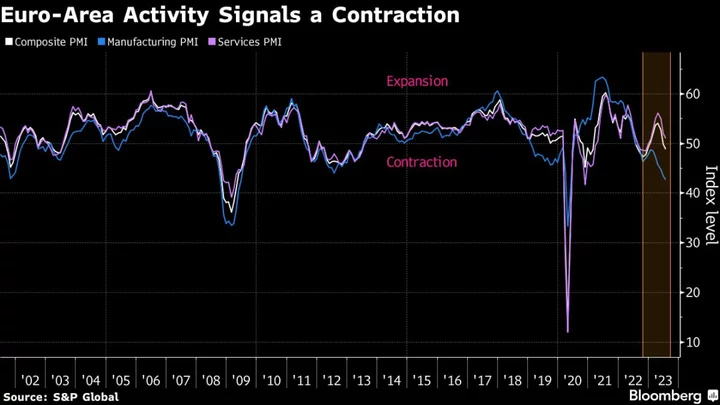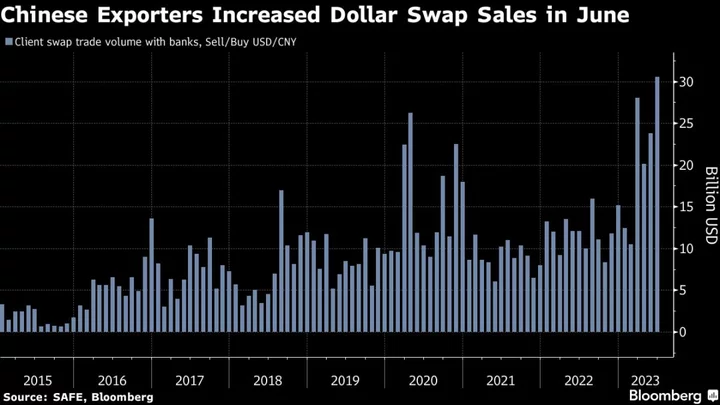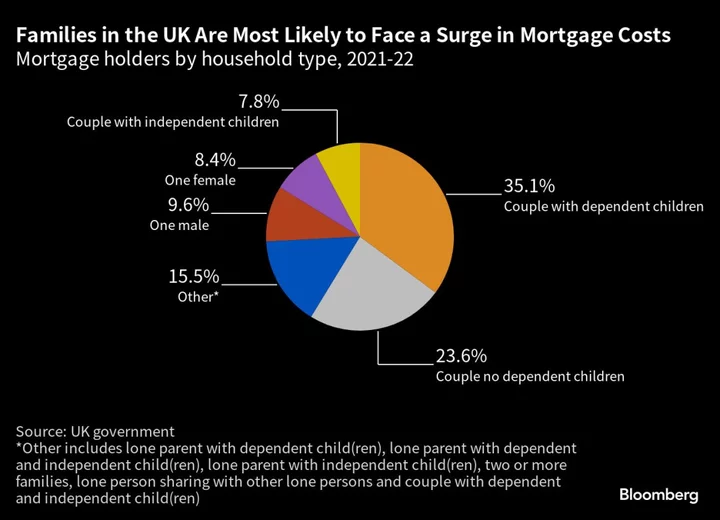The euro-area private-sector economy contracted more than anticipated in July, with order inflows and output expectations pointing to the downturn deepening in the coming months, according to S&P Global.
The flash Purchasing Managers’ Index for the region stayed below the 50 threshold that indicates growth for a second month, dropping to 48.9 in July from 49.9 a month earlier. That’s the lowest reading since November and worse than predicted by any economist in a Bloomberg survey.
The euro area might have dodged a winter recession, but the combination of low demand and strong inflation meant the economy failed to grow at the start of the year. Industry in particular has weighed on the region, and July’s 42.7 reading is the worst since the early months of the pandemic.
“Manufacturing continues to be the Achilles heel of the euro zone,” said Cyrus de la Rubia, chief economist at Hamburg Commercial Bank. “Producers have cut their output again at an accelerated pace in July, while the services sector’s activity is still expanding, though at a much slower rate than earlier in the year.”
Services have proven to be a saving grace, though they slowed to the weakest level since January this month.
That bodes badly for the region, which reports second-quarter data a week from today. Economists predict quarterly growth rates of 0.2% for that period and the remaining two this year. The International Monetary Fund expects economic output will grow just 0.8% this year, with updated data due Tuesday.
“The euro-zone economy will likely move further into contraction territory in the months ahead, as the services sector keeps losing steam,” de la Rubia said. “Further adding to the gloomy outlook is the fact that both the new business and outstanding business PMI indices for services have fallen into shrinking territory for the first time since the turn of the year.”
While that suggests that the record tightening campaign by the European Central Bank to tame inflation might avoid a so-called hard landing for the economy, it highlights the narrow path policymakers led by President Christine Lagarde have to tread.
The new PMI numbers showed that average prices charged for goods and services are still rising, though those increases are happening at the slowest rate for 29 months.
The ECB is all but certain to hike interest rates by another 25 basis points on Thursday, though what happens after that is still up in the air.
PMI data earlier on Monday showed the euro area’s top two economies — Germany and France — in contraction. The gauge for Australia fell below 50, while figures indicated stable expansion in Japan. The UK and US are both predicted to show solid growth for July.
--With assistance from Joel Rinneby and Mark Evans.









